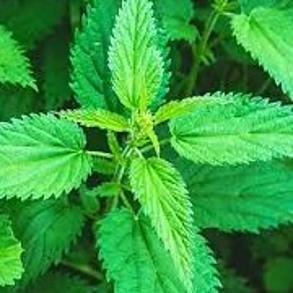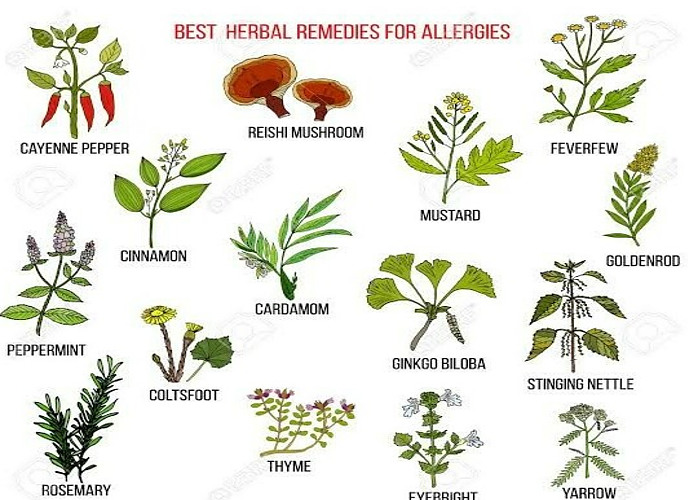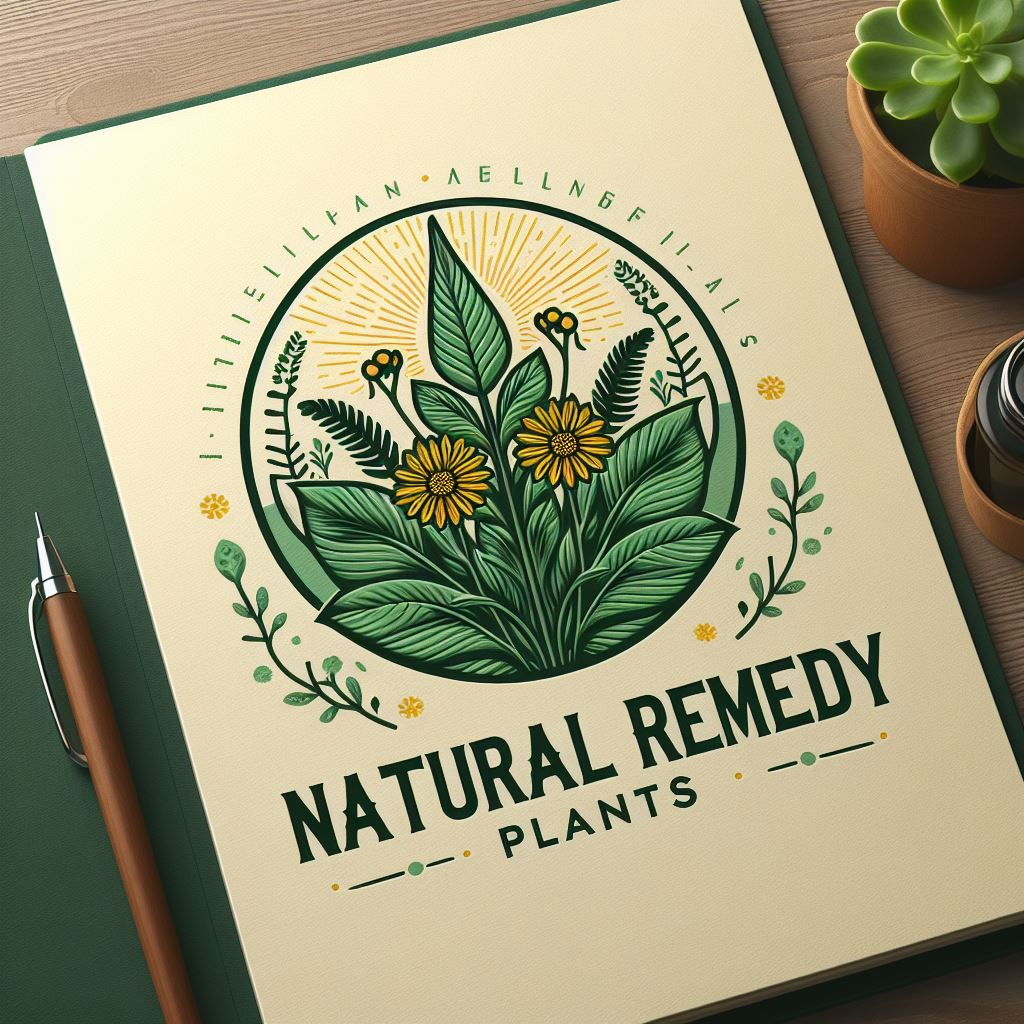Let’s talk about allergies. At their core, allergies are your body’s overreactive immune responses to substances that are generally harmless, like pollen, pet dander, or certain foods.
These substances, known as allergens, trigger symptoms that can range from mild sniffling and sneezing to severe, life-threatening reactions.

Now, you might be familiar with the usual treatments for allergies. These include over-the-counter antihistamines, decongestants, and, for more severe cases, prescription medications or allergy shots. These conventional methods are widely used and recommended by healthcare professionals.
But here’s where it gets interesting. Herbal remedies have been used for centuries to manage various health issues, including allergy symptoms. They offer natural alternatives, with the bonus of fewer side effects for some people. It’s important to remember, though, that ‘natural’ doesn’t automatically mean ‘safe’ for everyone. That’s why I strongly recommend discussing these options with a healthcare provider before you start experimenting.
Choose something that resonates with you. Whether it’s because you prefer natural treatments or you’re looking for additional ways to ease your symptoms, just remember to prioritize your health and safety first and foremost. This isn’t just about trying something new; it’s also about being smart and informed in your choices.
After this brief introduction to allergies and herbal interventions, you’re going to find out about specific herbs that are popular among allergy sufferers. These aren’t random plants I picked from a garden – there’s science and tradition backing them up, and we’ll delve into that in the next section.
Common Herbal Remedies That May Ease Allergy Symptoms
I’m going to explore some well-known herbal remedies that many find helpful for allergies. Remember, while these have been suggested to help with symptoms, they’re not a substitute for medical advice or conventional treatment.

One popular option is stinging nettle. Often dreaded for its itchy contact, stinging nettle may actually serve as a natural antihistamine. This means it could help your body combat the histamine that causes those pesky allergy symptoms. You can find stinging nettle in various forms, such as teas, capsules, or extracts.
You’re going to find out about butterbur next. It’s been traditionally used in Europe for pain relief and as an anti-inflammatory agent. Some studies suggest that butterbur might help reduce nasal symptoms related to allergies. However, it’s crucial to choose a product labeled ‘PA-free,’ ensuring it’s free from potentially harmful toxins found naturally in the plant.
Then there’s quercetin, a bioflavonoid present in onions, apples, and tea. It’s thought to prevent the release of histamine, which could be why some say it helps with their allergy symptoms. Quercetin is also available as a dietary supplement, for those who want to increase their intake.
Bromelain, an enzyme in pineapples, is another contender. It’s not just for tenderizing meat – it might also alleviate respiratory distress associated with allergies. Some people take bromelain supplements to help with nasal swelling and sinus problems.
Lastly, let’s talk about spirulina. This blue-green algae is often touted for its nutritional benefits, and some preliminary studies suggest it might also help modulate the immune system. While spirulina could have potential benefits for allergy sufferers, it’s still early days, and more research is needed.
Now, as we pivot to section three, I’m going to delve into the scientific evidence behind these remedies. As promising as they sound, it’s crucial to look at what the research really says about their effectiveness in managing allergy symptoms.
Scientific Evidence Behind Herbal Remedies for Allergies
I’m going to break down what the science says about using herbal remedies for allergies. It’s easy to get excited about natural treatments, but let’s look at the evidence to see how they stack up.
First up, several studies have highlighted the potential benefits of specific herbs. For instance, stinging nettle has been shown to offer some relief in allergies by acting as a natural antihistamine. There’s also promising research on butterbur for alleviating nasal symptoms.
Butterbur, a plant extract, has been examined in various clinical trials and has demonstrated potential in reducing allergic rhinitis. Though promising, not all studies agree, making it crucial to interpret these findings with caution.
Quercetin, a bioflavonoid found in high amounts in onions, apples, and black tea, has been identified as having anti-inflammatory and antihistamine properties. However, most of the research has been done in laboratories, so the direct effects on human allergies are still under investigation.
Bromelain, an enzyme in pineapples, is another one to watch. It might help with respiratory problems associated with allergies by reducing nasal swelling and thinning mucus.
And let’s not forget spirulina. Some studies suggest that this blue-green algae could modulate the immune system, although the current research is far from conclusive.
In my opinion, while there’s a chunk of evidence supporting the use of these herbal remedies, there are also significant gaps. Without large-scale, high-quality studies, it’s hard to definitively say how effective these treatments are.
Individual biology plays a huge role as well. What works well for one person might not work at all for another, and that’s as true for herbal remedies as it is for conventional medicines.
You’re going to find out just why that personal touch matters when using herbal remedies in the next section. We’ll get into best practices that will help you use these natural treatments safely and smartly.
Best Practices When Using Herbal Remedies for Allergies

When it comes to managing allergies with herbal remedies, it’s not just about finding the right plants to soothe your symptoms – it’s also about using them wisely. I’m going to help you navigate the ins and outs of herbal supplement use.
First and foremost, choose your herbal products carefully. Opt for those that are certified organic and verified for quality. This can really make a difference in how effective they are.
Even though herbal remedies are natural, they’re not exempt from causing allergic reactions. Pay attention to your body’s responses and stop using them if you experience any adverse effects.
Proper dosage is key. More isn’t always better. You want to follow the recommended dosages or those advised by your healthcare provider. If you’re unsure, it’s important to ask. This can greatly reduce the risk of side effects.
Keep in mind that, while herbal remedies can offer relief, you should be working closely with your healthcare provider throughout their use. They can give you personalized advice and monitor your health as you navigate allergy season.
Remember, managing allergies is a comprehensive process that might include diet, environment adjustments, and sometimes prescription medications. Herbal remedies can be a valuable part of this puzzle, but ensure they fit well with your overall health strategy.

Thanks for shedding light on herbal remedies for allergies. The breakdown on stinging nettle, butterbur, quercetin, bromelain, and spirulina is enlightening! Have you personally tried any of these remedies, and if so, what worked best for you? Also, the scientific evidence provided is insightful, but how do individual factors, like allergies or existing health conditions, play a role in the effectiveness of these herbs? Lastly, any advice on incorporating herbal remedies into a broader allergy management plan?
Hi Stratos,
I’m so glad my post was enlightening and helpful for you.
So far I have seen benefits in using stinging nettle for allergies, but it could very for each individual.
Individual factors such as allergies or existing health conditions can influence how herbs affect a person. Allergies may cause adverse reactions, while certain health conditions may interact with herbs or their compounds, affecting their effectiveness or safety. It’s crucial to consult with a healthcare professional before using herbs, especially if you have pre-existing health concerns or allergies.
regards Russell
I don’t think the title of your article matches the content lol. Just kidding, mainly because I had some doubts after reading the article. https://www.binance.info/join?ref=IJFGOAID
Thank you for your sharing. I am worried that I lack creative ideas. It is your article that makes me full of hope. Thank you. But, I have a question, can you help me? https://accounts.binance.com/vi/register-person?ref=WTOZ531Y